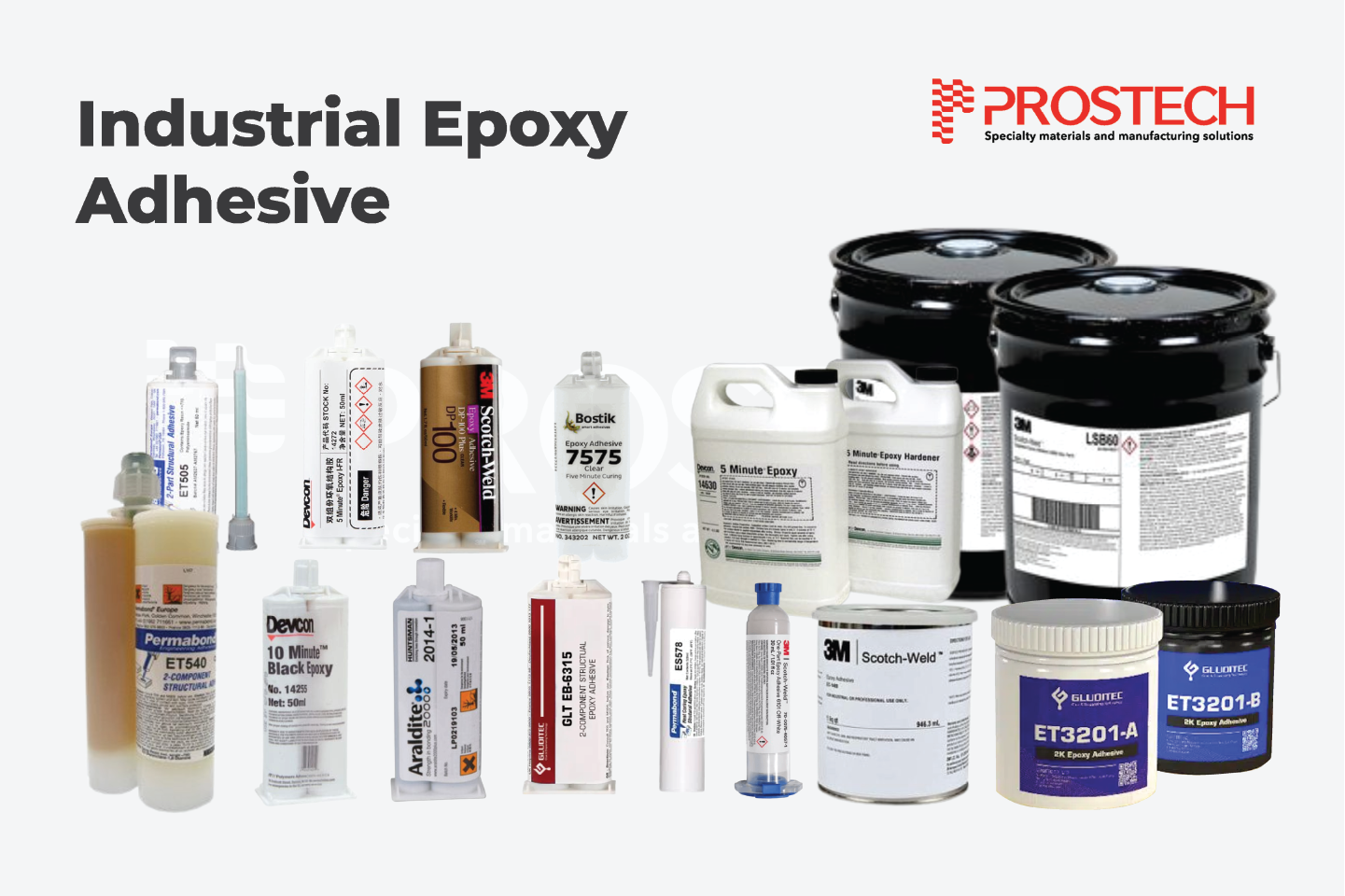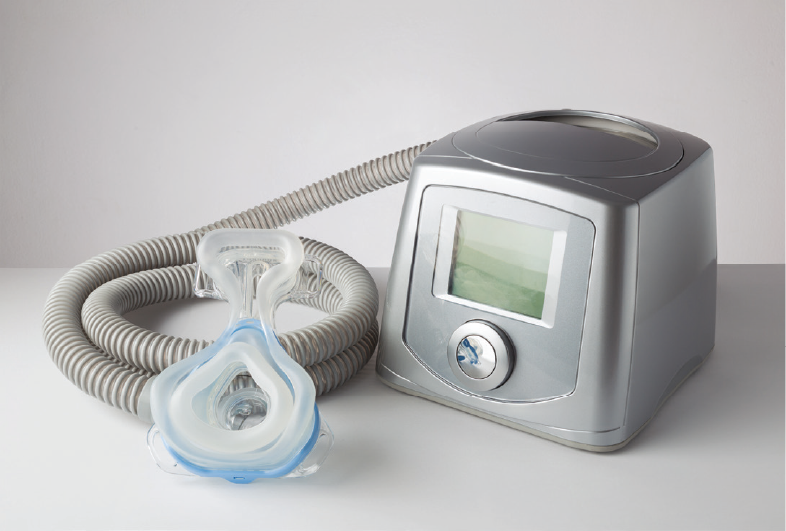Whether in industrial facilities, data centers, or food processing plants, efficient and reliable cooling systems are non-negotiable. Yet, despite modern advancements, several persistent challenges continue to compromise performance and system longevity. From corrosion to microbial growth, understanding & addressing these issues starts with choosing the right coolants for fluid cooling system. Let’s dive into the most common problems and what technical requirements your fluid must meet to overcome them.
Common challenges in fluid cooling system
1. Corrosion in Multi-Metal Systems
Cooling systems often involve a mix of metals — aluminum, copper, steel, and sometimes even exotic alloys. When different metals are present, galvanic corrosion becomes a major risk. Without proper inhibitors, these metals can rapidly degrade, leading to leaks, efficiency loss, and system failure.
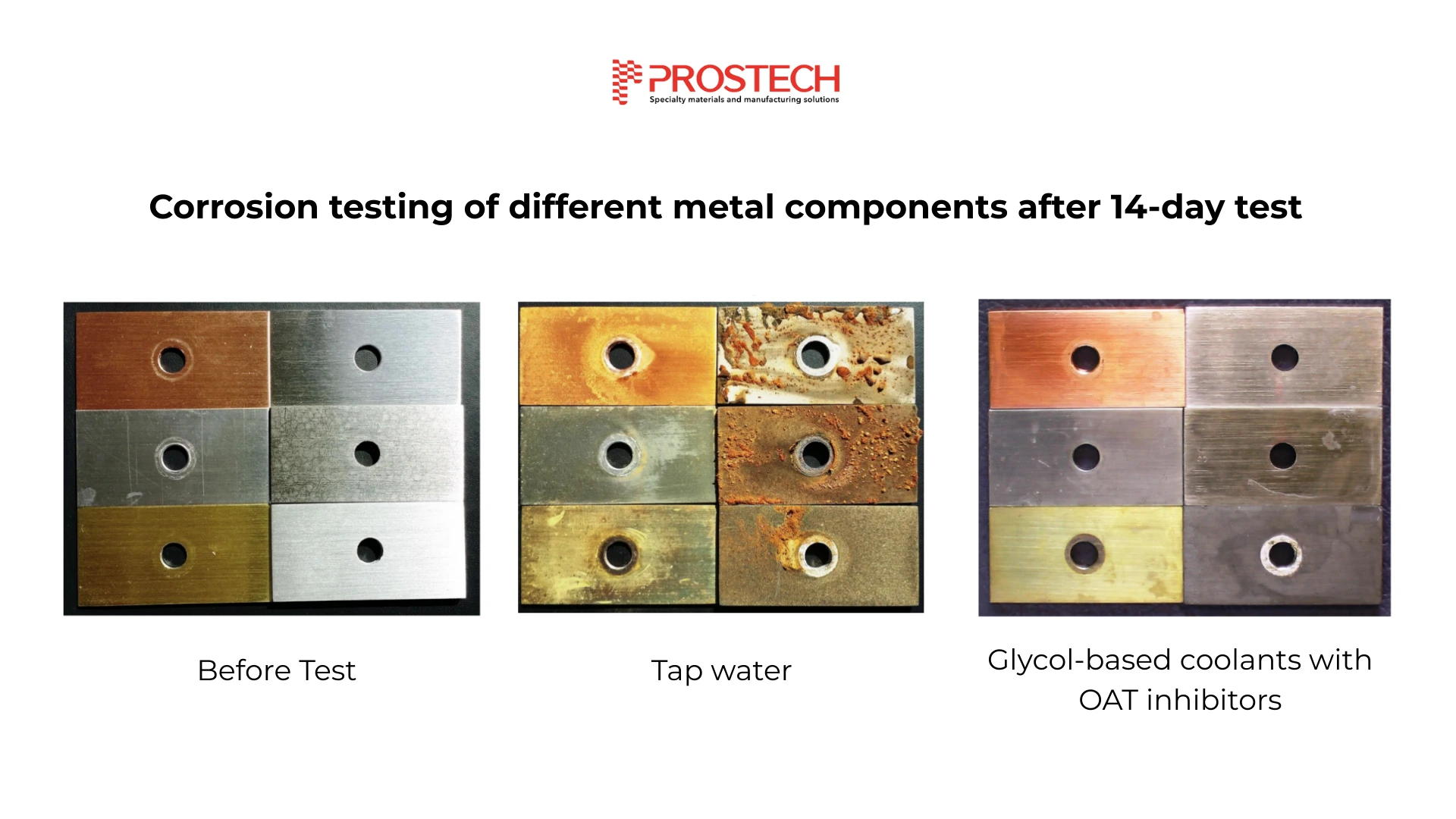
The Solution: Use a heat transfer fluid formulated with Organic Acid Technology (OAT) inhibitors. These inhibitors create a microscopic protective layer over active sites on the metal surface, preventing oxidation and corrosion. Unlike traditional silicate- or phosphate-based additives, OATs are long-lasting and less prone to dropout.
2. Formation of Scale inside fluid cooling system
Water containing high levels of calcium and magnesium can contribute to the buildup of mineral scale. The more scale that builds up, the harder it is for heat to pass from the system fluid to the environment or cooling medium. Just 2mm of scale on a heat exchanger can reduce heat transfer by up to 40%.
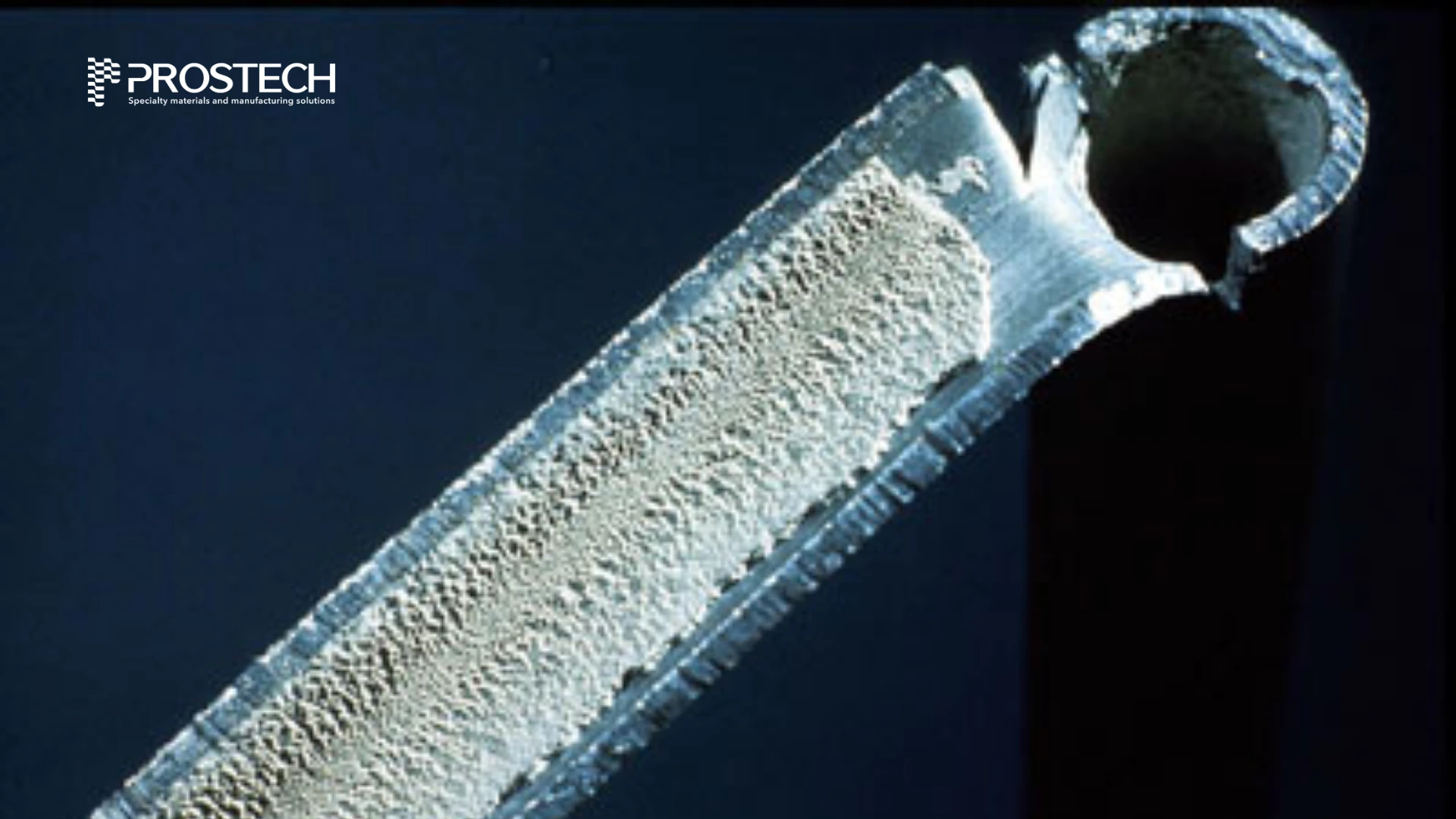
The Solution: Use heat transfer fluids that contain chelating agents. These chemicals bind to calcium and magnesium ions, preventing them from forming scale on system components. Some advanced heat transfer fluids, such as OAT (Organic Acid Technology) fluids, offer long-term protection against scale formation while maintaining excellent heat transfer properties. These fluids are formulated to reduce scaling while also extending the overall fluid lifespan.
3. Biological Growth inside fluid cooling system
Warm, moist environments are a breeding ground for bacteria and algae. If unchecked, this biological contamination can clog lines, foul heat exchangers, and produce unpleasant odors. Worse, microbial growth can accelerate corrosion and reduce heat transfer efficiency.
The Solution: The best solution for preventing biological growth in cooling fluids is to use a fluid that includes biocides or antimicrobial agents designed to suppress microbial growth. Additionally, systems should be flushed and cleaned periodically to remove residual nutrients that foster growth. Some users also flush the system with the coolant itself after DI water flushing to maintain cleanliness before charging.
4. Fluid Life
Not all coolants are created equal. Over time, thermal and oxidative degradation can compromise fluid stability, forming sludge or foam, and ultimately reducing effectiveness. A fluid that ages poorly can also become a safety hazard, increasing the risk of breakdowns or contamination.

The Solution: Select a stable, premixed coolant with a long service life — ideally one that’s tested under high thermal stress conditions. OAT-based fluids, for instance, degrade much more slowly than traditional IAT/HOAT types, and their typical shelf life is up to 10 years. This extended shelf life ensures that the fluid remains effective for a long period without the need for frequent replacement. Additionally, avoid diluting with tap water, which may introduce ions that accelerate degradation. Since OAT molecules can continuously reattach and re-form protective layers, the fluid maintains its corrosion-inhibiting properties for a much longer period. This characteristic helps reduce the frequency of fluid changes, improving the operational efficiency and reducing maintenance costs.
Related article: Heat Transfer Fluids (HTFs) for Industrial Cooling
Prostech Recommends: Reco-Flow Series
Prostech is proud to recommend the Reco-Flow Series of heat transfer fluids, offering the latest technology chemistries and superior protection for various industrial applications. Reco-Flow is a trusted Recochem series of heat transfer fluids that provide:
✔️ Both inorganic and organic technologies
✔️ Lifetime 2 YEARS or 10 YEARS
✔️ FDA approval
✔️ Biocide control (no algal growth)
✔️ Suitable for low temperature (sub freezing)
✔️ Excellent protection for aluminum, copper, steel, and mixed-metal systems
✔️ Anti-scale and anti-bacterial formulation
✔️ Fully premixed – no need to dilute or add deionized water
| Product Name | Chemistry Type | Performance Features and Benefits |
|---|---|---|
| Reco-Flow G | Inorganic inhibitors, water-based fluid | – Complies with ASTM D 1384 – 2-year service life – Multi-metal protection |
| Reco-Flow GT | Inorganic inhibitors, MEG-based fluid | – Complies with ASTM D 1384 – 2-year service life – Multi-metal protection – Broader temperature range |
| Reco-Flow X | Organic acid technology inhibitors, water-based fluid | – Complies with ASTM D 1384 – 10-year service life – Multi-metal protection |
| Reco-Flow XT | Organic acid technology inhibitors, MEG-based fluid | – Complies with ASTM D 1384 – 10-year service life – Multi-metal protection – Broader temperature range |
| Reco-Flow FX | Organic acid technology inhibitors, water-based fluid | – Complies with ASTM D 1384 – USFDA/CFIA approved – 10-year service life – Multi-metal protection |
| Reco-Flow FXT | Organic acid technology inhibitors, PG-based fluid | – Complies with ASTM D 1384 – USFDA/CFIA approved – 10-year service life – Multi-metal protection – Broader temperature range |
Some of Recochem’s products, such as OAT PG-25, are tested, recommended, and actively used by leading chip, server, and CDU manufacturers, making it a trusted solution in modern hyperscale data center deployments.
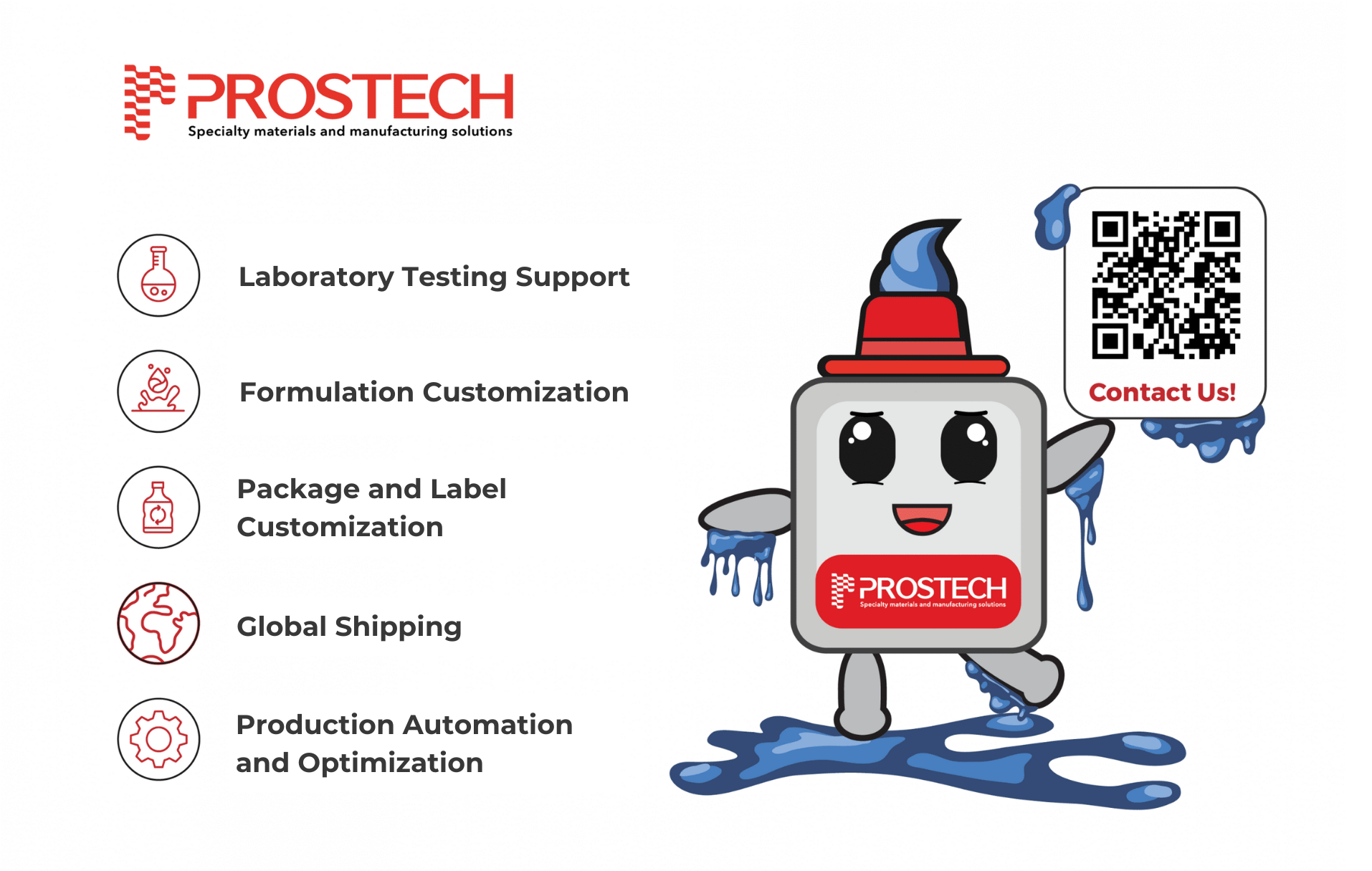
Prostech is the authorized distributor of Recochem’s products. Backed by deep technical knowledge and close collaboration with leading manufacturers, we provide not just the product but also the guidance to help you design, implement, and optimize your direct-to-chip cooling systems with confidence. Whether you’re planning a new deployment or looking to upgrade an existing setup, our team is here to support you at every step.
Contact Prostech today for a customized quotation and expert consultation tailored to your specific cooling requirements.




